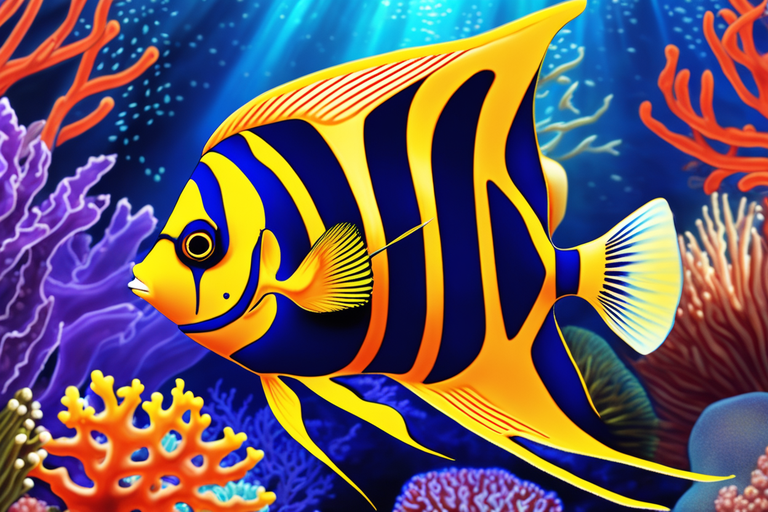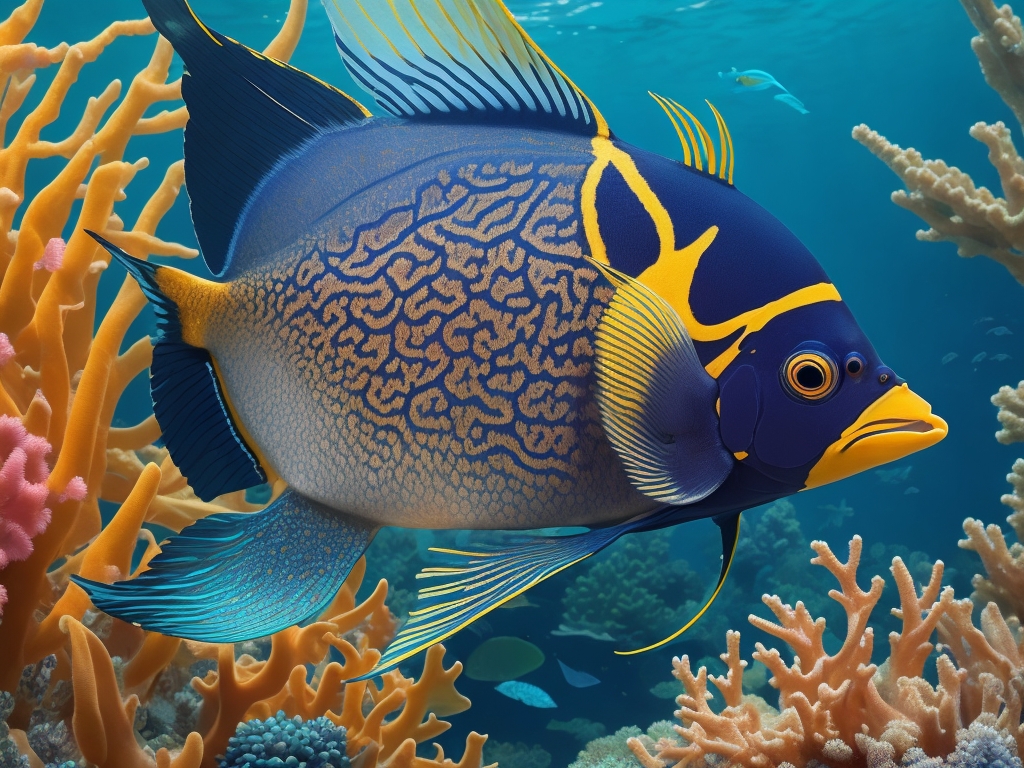Do you want to know how long your angelfish can live?
In this article, we will explore the average lifespan of angelfish and the factors that can affect their longevity.
You will also discover valuable tips for extending the lifespan of your angelfish and learn about common health issues they may experience.
Additionally, we will discuss how to create the ideal environment for your angelfish to thrive.
Get ready to dive into the fascinating world of angelfish longevity!
The Average Lifespan of Angelfish
Angelfish typically live for about 10 years. They’re a popular choice for aquarium enthusiasts due to their striking appearance and peaceful temperament.
Angelfish breeding habits play a crucial role in their lifespan. Breeding pairs should be selected carefully to ensure genetic diversity and optimal health. Angelfish are known to lay their eggs on broad leaves or flat surfaces, and both parents actively protect and care for the eggs.
Proper angelfish care and maintenance is essential for their longevity. It includes maintaining appropriate water parameters, providing a balanced diet, and ensuring a suitable tank environment. Regular water changes, proper filtration, and monitoring the water temperature are vital for their well-being.
Additionally, providing hiding places and maintaining a peaceful tank environment can reduce stress and promote a longer lifespan for these beautiful creatures.
Factors Affecting Angelfish Longevity
Factors like water quality, diet, and tank size can impact how long your angelfish will survive. Ensuring the optimal conditions for your angelfish can greatly improve their longevity. Here are some factors that can affect your angelfish’s lifespan:

- Water quality:
- pH levels: Maintaining a pH level between 6.5 and 7.5 is crucial for the health and survival of your angelfish.
- Temperature: Keeping the water temperature between 75 and 82 degrees Fahrenheit creates an ideal environment for your angelfish to thrive.
- Diet and nutrition:
- Varied diet: Providing a balanced diet of high-quality flake food, pellets, and live or frozen foods like brine shrimp and bloodworms is essential for their overall health.
- Nutritional supplements: Supplementing their diet with vitamins and minerals can further enhance their well-being and reproductive capabilities.
Tips for Extending the Lifespan of Angelfish
To extend the lifespan of your angelfish, it’s important to provide a clean and well-maintained tank environment. Proper nutrition is crucial for the health and longevity of your angelfish. They require a balanced diet consisting of both live and dry foods. Live foods such as brine shrimp and bloodworms should be offered regularly to meet their protein needs. Additionally, high-quality dry foods formulated specifically for angelfish should be included in their diet.
Maintaining water quality is essential for their well-being. Regular water changes and filtration are necessary to remove waste and maintain optimal water conditions.
When it comes to breeding and raising angelfish fry, providing a separate breeding tank with suitable conditions, such as low lighting and soft, acidic water, is important. Feeding the fry with newly hatched brine shrimp or specialized fry food will help them grow and thrive.
Following these tips will help ensure a longer lifespan for your angelfish.
Common Health Issues in Angelfish
If you notice any changes in your angelfish’s behavior or physical appearance, it’s important to seek veterinary advice to address common health issues. Taking preventive measures for angelfish health is crucial in ensuring their well-being.
Here are some common diseases that can affect angelfish and how to identify and treat them:
- Bacterial infections: Look for signs of lethargy, loss of appetite, and frayed fins. Treat with antibiotics and ensure clean water conditions.
- Parasitic infections: Watch for itching, white spots, and rapid breathing. Treat with anti-parasitic medications and maintain good water quality.
- Fungal infections: Keep an eye out for white, cotton-like patches on the skin or fins. Treat with antifungal medication and improve water quality.
- Swim bladder disorder: Observe for difficulty swimming or floating upside down. Adjust diet and provide a well-balanced, easily digestible food.
Creating the Ideal Environment for Angelfish
To ensure your angelfish thrive in their environment, it’s important to provide the ideal conditions for their well-being. One key aspect is the choice of tank decorations.
Angelfish prefer a tank with plenty of hiding spots and areas to explore. Adding plants, rocks, and driftwood can create a natural and stimulating environment for them.
When it comes to angelfish breeding, the right setup is crucial. Provide a separate breeding tank with smooth surfaces, such as broad leaves or a slate, for the fish to lay their eggs on. The water conditions should also be carefully monitored, with a slightly lower pH and temperature to encourage breeding behavior.
–
In conclusion, the average lifespan of angelfish can range from 5 to 10 years, but with proper care and a suitable environment, they can live even longer.
Factors such as water quality, diet, and tank size greatly impact their longevity. By maintaining optimal conditions, providing a balanced diet, and monitoring their health, you can maximize the lifespan of your angelfish.
It’s important to address any common health issues promptly and create an ideal environment to ensure the well-being and longevity of these beautiful fish.

